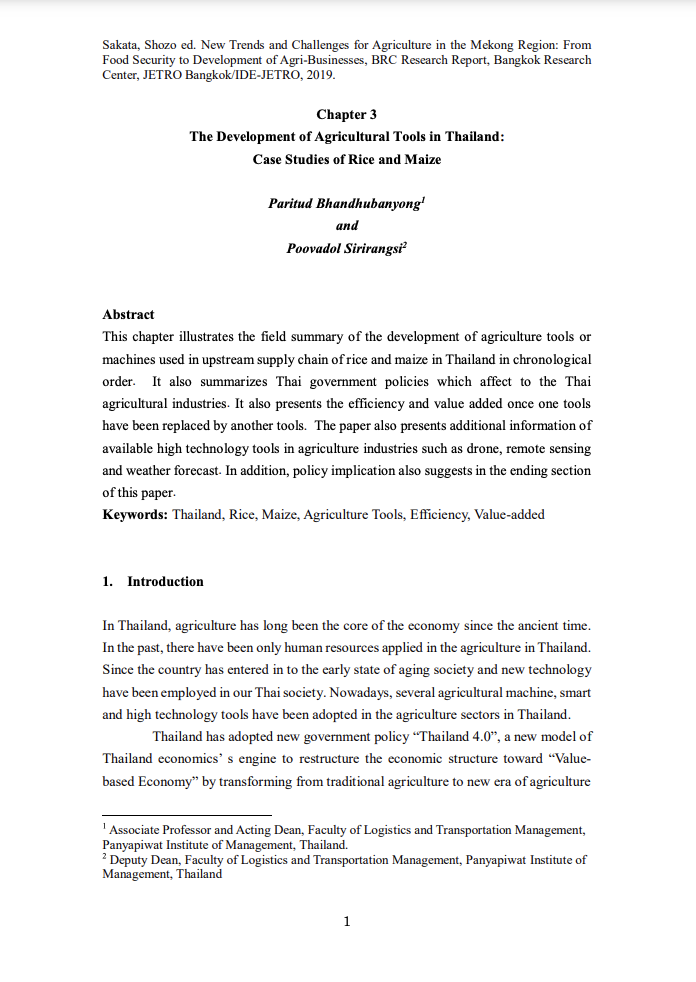Location
Our Goal: Intellectual Contributions to the World
The Institute of Developing Economies (IDE) aims to make intellectual contributions to the world as a leading center of social-science research on developing regions. We accumulate locally-grounded knowledge on these areas, clarify the conditions and issues they are facing, and disseminate a better understanding of these areas both domestically and abroad. These activities provide an intellectual foundation to facilitate cooperation between Japan and the international community for addressing development issues.
Name
Institute of Developing Economies, Japan External Trade Organization (IDE-JETRO)
(A research institution affiliated with JETRO, which is an incorporated administrative agency)
Members:
Resources
Displaying 1 - 5 of 6The Development of Agricultural Tools in Thailand: Case Studies of Rice and Maize
This chapter illustrates the field summary of the development of agriculture tools or machines used in upstream supply chain of rice and maize in Thailand in chronological order. It also summarizes Thai government policies which affect to the Thai agricultural industries. It also presents the efficiency and value added once one tools have been replaced by another tools. The paper also presents additional information of available high technology tools in agriculture industries such as drone, remote sensing and weather forecast.
Rural Households
...This study will examine the food (rice) availability at the national level using the official and FAO data. Second, a case study in the rice deficit region (Dry Zone) will present the characteristics and food security status of the farm and non-farm rural households (landless) and the determinants of food security. The Dry Zone was chosen to study because the EC & FAO (2007) classified this region as the most vulnerable area of the country. Furthermore, the FAO projected that the Net Primary Production would be decreased significantly in the Dry Zone in the next two decades.
Trends of Development of Myanmar Fisheries: With References to Japanese Experiences
Judging by the increase in landing volume, Myanmar fisheries is developing fast. Due to
the amount of export earning fisheries sector have its role as one of the main contributors to
the national GDP. Thus fisheries are recognized as an important economic sector for the
country. The fisheries landing is significantly increasing in recent years. It is more than three
times larger than that of 1990s.
In 1990-91 the earning form fisheries export was only US$ 13 million. It has been
ANNEX: Land and agricultural land management in Vietnam
ABSTRACTED FROM THE BOOK INTRODUCTION: ... provides some pieces of information of land management policies, especially of land use rights, since the early 1980s. This monograph ... presents important background information in order to learn under which conditions Vietnam’s agricultural development has occurred.
Rich Periphery, Poor Center: Myanmar's Rural Economy
Abstract:
"This paper looks at the case of Myanmar in order to investigate the behavior and welfare of
rural households in an economy under transition from a planned to a market system. Myanmar's
case is particularly interesting because of the country's unique attempt to preserve a policy of
intervention in land transactions and marketing institutions. A sample household survey that we
conducted in 2001, covering more than 500 households in eight villages with diverse




